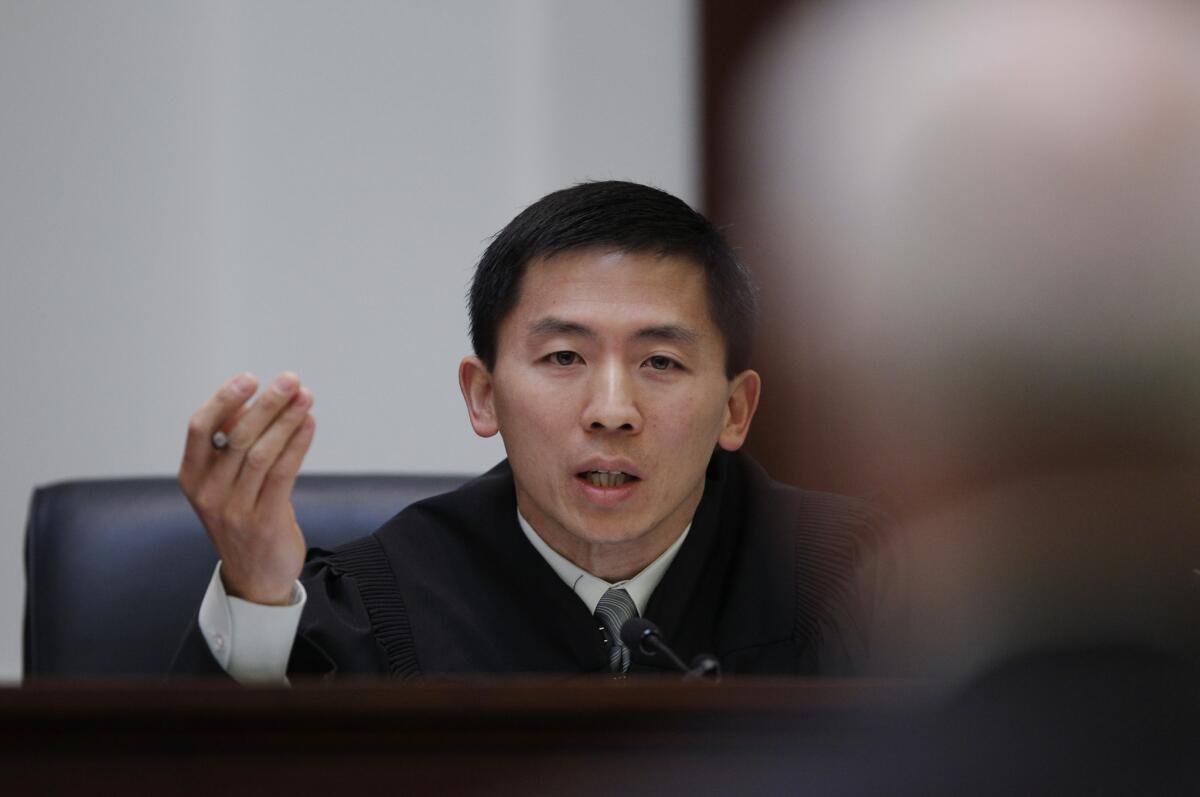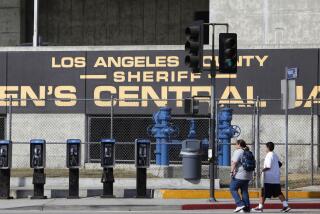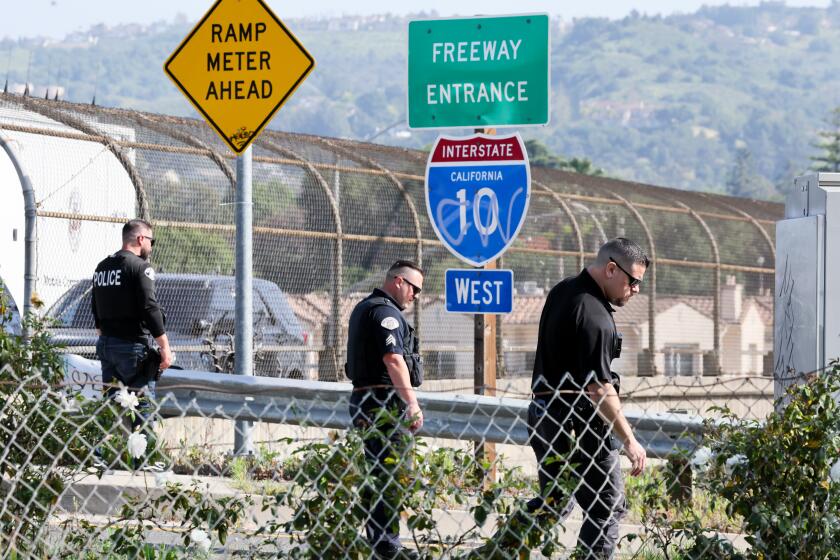State must release full records of abuse at care facilities, court says

In a victory for freedom of information advocates, the California Supreme Court decided unanimously Thursday that the state must release all information — except for patients’ names — about documented abuses in long-term care facilities for the mentally ill and developmentally disabled.
The decision, written by Justice Goodwin Liu, will prevent the state from heavily redacting information when responding to public records’ requests about citations issued by the Department of Public Health against government-owned facilities. Efforts to learn about the nature of abuses have been hindered in the past because the agency said it was bound by a patient-confidentiality law to omit most information.
Duffy Carolan, who represented California’s Center for Investigative Reporting in the case, called the ruling “a complete victory under the Public Records Act.”
“Now residents at the facilities, and their families and the public are going to be able to hold the facilities and the Department of Public Health accountable,” Carolan said.
The ruling stemmed from efforts by the investigative reporting center to obtain copies of citations against facilities for people with severe autism, cerebral palsy and other developmental disorders. The documents the department supplied about injuries and even deaths of patients were so heavily redacted that it was impossible to discern what had happened.
The investigative center sued, with the support of other California media outlets, including the Los Angeles Times.
The dispute required the court to determine which of two conflicting state laws should be applied.
One, passed in 1967, obligated the state not to release confidential information obtained in the course of providing services to mentally ill and developmentally disabled individuals. The public health agency cited that law in refusing to release all but the scantiest information.
The other law, the Long-Term Care Act, was passed in 1973. It said that citations by the Department of Public Health against state facilities were public records and should be posted. The names of patients had to be excised, but all other information was to be disclosed.
“We conclude that the express terms of the Long-Term Care Act require that citations be made public,” Liu wrote, “subject only to the restriction that the names used in the citation must be redacted, except for the names of DPH’s investigating officers, employees, or agents.”
The court said the Care Act had to be followed because it was the more detailed and more recent law.
“The Legislature thought carefully and specifically about the importance of publishing citations and concluded that patients’ and residents’ confidentiality was adequately protected by redacting the names of the victims of a violation,” Liu wrote.
The investigative reporting center had sought copies of nearly five dozen reports on physical abuse, negligent medical care or other improprieties at state institutions for the developmentally disabled in Los Angeles, Orange, Sonoma, Riverside and Tulare counties.
The state gave the center 169 pages of documents, but redacted almost every word. The center said 35 of 55 citations from 2007 to 2011 appeared to involve abuse of patients, while the others seemed to be about inadequate medical care and neglect.
The center also sought documents about abuse at the Sonoma Developmental Center. Through a confidential source, the center obtained a citation disclosing that one-third of patients in a unit at the facility had been injured, apparently by a Taser. The citation described the injuries and said the patients had almost no ability to communicate verbally.
But the redacted copy of the citation provided by the health department said little more than that a violation involving protection of patient rights had occurred.
Peter Scheer, executive director of the nonprofit First Amendment Coalition, said Thursday’s decision would ensure that the public has a mechanism for monitoring the kind of care California gives to an extremely vulnerable population.
“Hopefully now that the law has been clarified in a definitive way, the information will begin to flow,” said Scheer, whose group advocates for freedom of speech and government transparency. “As a result, the quality of care will improve because that flow of information makes it possible to hold people accountable for their care of these clients.”
A spokeswoman for Atty. Gen. Kamala D. Harris, whose office represented the Department of Public Health, referred questions to the health department. Officials there said they were reviewing the court decision and had no other comment.
Twitter: @mauradolan
More to Read
Start your day right
Sign up for Essential California for news, features and recommendations from the L.A. Times and beyond in your inbox six days a week.
You may occasionally receive promotional content from the Los Angeles Times.







